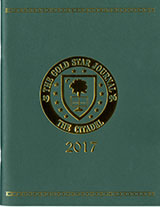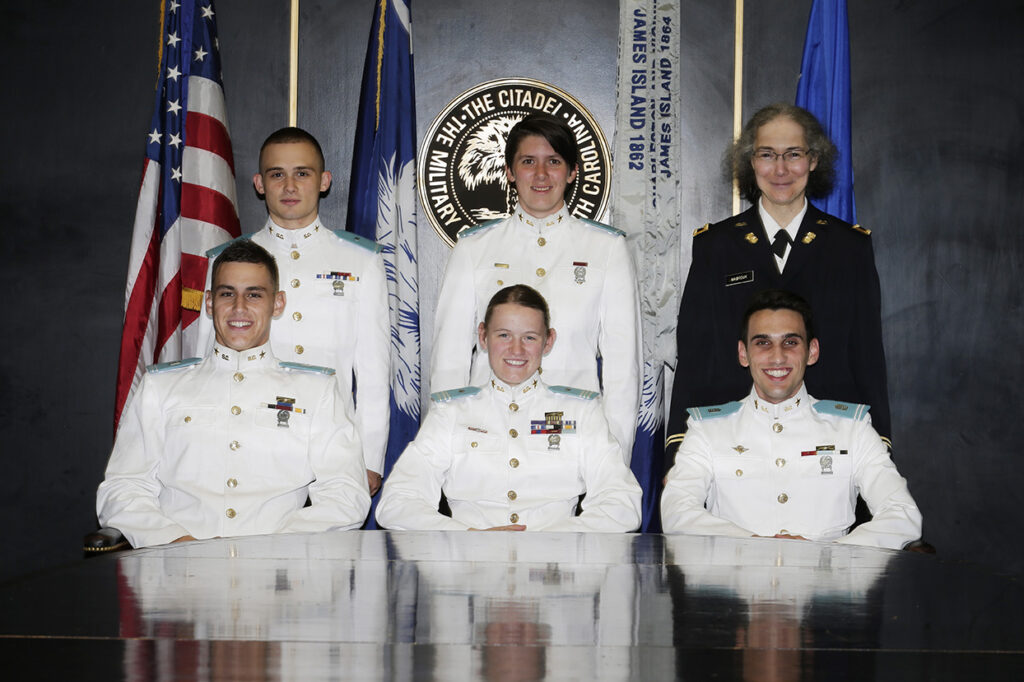
Front row: John Clark (Editor), Lauren Seedor (Editor-in-Chief), and Grant Miller (Editor).
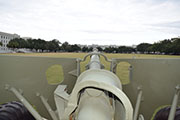
Editor-in-Chief
- Lauren A. Seedor, 2017, Political Science Major.
The Editors
- John S. Clark, 2018, Business Major.
- Hunter E. Crawley, 2019, Biochemistry Major.
- Grant N. Miller, 2018, English and Spanish Major.
- Matthew G. Lanetti, 2019, Chemistry Major.
To view the entire 2017 edition, click this link or the cover above.
Best Overall Paper
“A Journey: From Being Muslims in China to Becoming Chinese Muslims,” Monica C. Paulk, Class of 2018, History and Political Science Major.
| This paper addresses the transition and assimilation of Muslims into China during the 7th to 14th centuries. They first came as merchants and throughout the centuries they expanded their roles in society to soldier, politician, and explorer. Currently both China and the Middle East are major areas of interest. By knowing their past, and more importantly their past interactions, it is easier to understand their current actions and relationships. |
Best Undergraduate Paper
“Extractive Institutions and the Arab Spring,” David T. Truesdale, Class of 2018, Political Science Major.
| At the onset of the Arab Spring, many people applauded the efforts of citizens in Middle Eastern nations attempting institutional reform. However, the reformation movement largely failed to build long-lasting democracy and in most cases led to serious and ongoing civil strife. This paper discusses the failure of the Arab Spring by using the theory of public choice to describe the cycle of furthering extractive institutions. |
Best Photograph
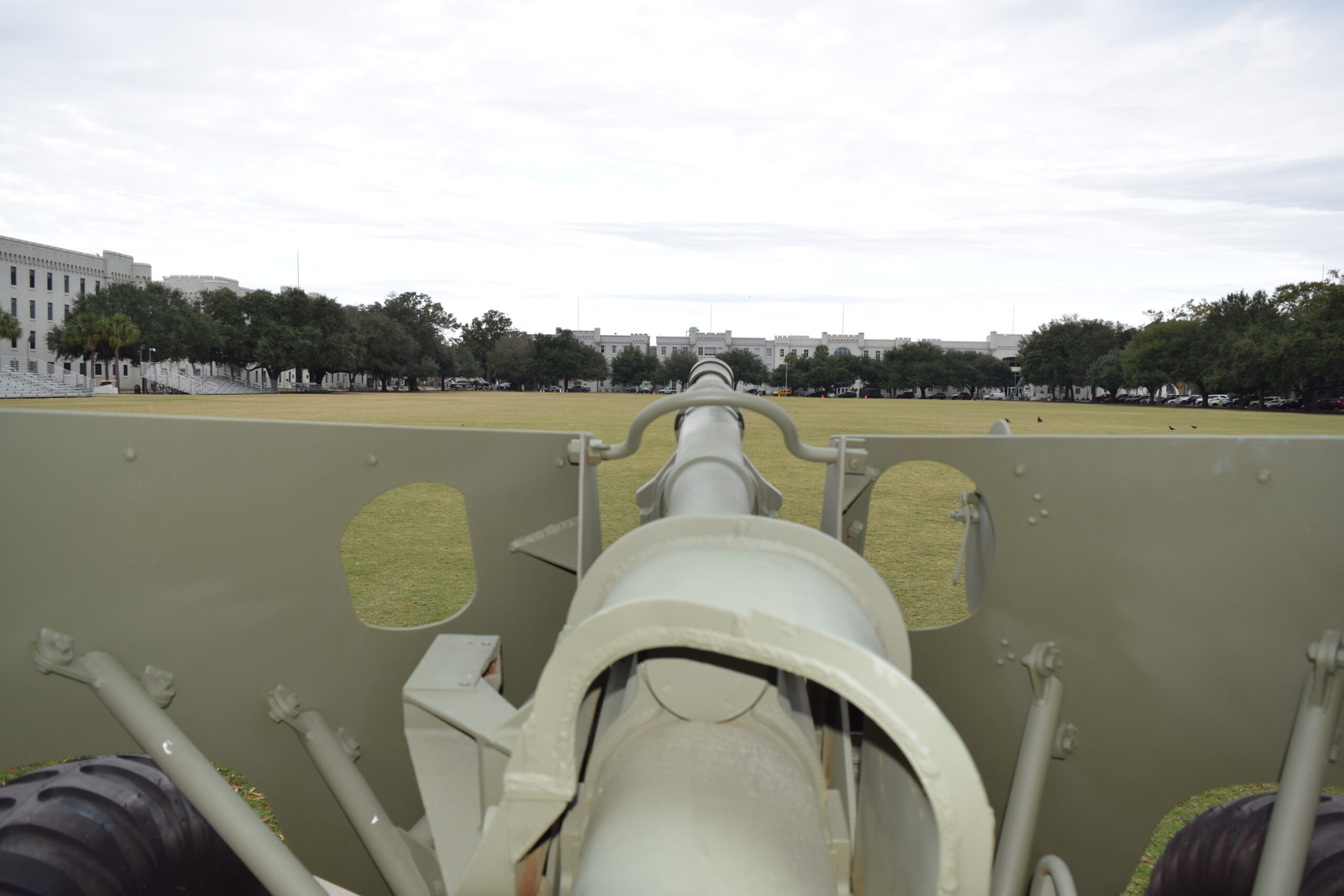
Michael J. Kecken
Class of 2017
Political Science Major.
Cannon on the Parade Deck
Featured Papers
“Ethics and ‘The Immortal Life of Henrietta Lacks’,” Paul G. Klosinski, Class of 2017, Biology Major.
Henrietta Lacks was an African American who suffered from cervical cancer. In the process of treating her, doctors discovered an immortal cell line called HeLa cells. These cells are considered the most important discovery in medical research, as they have allowed for further research and discoveries that would eventually save millions of lives. Henrietta and her family were unaware of the profit that doctors made and the impact that she had on the medical community. This paper discusses the ethics of the doctors actions, and whether the Lacks family is entitled to the money and fame that doctors received from the discovery of an immortal cell line.
“Anti-Inflammatory Effect of Titanium-Substituted Polyoxometalates on Asthma,” Benjamin A. McCall, Class of 2018, Chemistry Major.
Polyoxometalates are negatively charged anions usually constructed with an early generation transition metal such as vanadium (V), niobium (Nb), molybdenum (Mo), and tungsten (W). Scientists are searching for cheaper and more effective ways to manage diseases by using polyoxometalates to improve the drug delivery process. There is evidence to suggest that these compounds may be effective in treating asthma in some patients and they may be able to access the cell directly through endocytosis.
“The Annexation of Crimea: Intelligence Shortcomings and Successes,” John H. Reynolds, Class of 2018, Criminal Justice Major.
This paper examines the key timelines behind the Russian Annexation of Crimea and how the “West” was systematically defeated in the field of intelligence by the Russian military and its intel community. Due to the rise of Cold War era relations between Russia and the West, it is important to learn from the mistakes of past engagements and to better understand the strategies and methods of the Russian Federation.
“Israeli Counterterrorism: Shin Bet and Counterterrorism Policy,” John D. Cordes, Class of 2018, Criminal Justice Major.
This paper explores the relationship between Shin Bet, Israel’s premier intelligence agency, and counterterrorism policy in Israel. Some of the practices that are utilized are often intense. Whether it is the deradicalization of prisoners in captivity or the interrogation of prison detainees, Shin Bet never fails its mission to protect the Israeli people. They do not back down in any situation. This behavior, however, has led to controversies and failures; many of which can be learned from in other nations’ intelligence agencies.
“Pizarro’s Conquest of the Inca,” Luke T. Baker, Class of 2017, History Major.
This paper examines Francisco Pizarro’s campaign to conquer the Inca Empire in what would be the first step in the eventual Spanish domination of South America. Pizarro managed to bring down the largest empire in the world at the time with just a few hundred men and his own ambition and cunning. Had Pizarro failed in his mission, Spain would have been deprived of the vast gold and silver mines that enabled it to be the most powerful nation in the world in the 16th century. Additionally, the Inca Empire, armed with the new knowledge of its opposition, would likely have managed to resist Spanish domination for decades, if not longer.
“Berserkers, a Method to their Madness,” Jason A. Kline, Class of 2018, Chemistry Major.
History is full of fables of heroes, villains, and their horrific encounters. The tales include the characters accomplishing extraordinary feats of strength and stamina. In modern times, people consider such things fabrications passed down by societies to impart knowledge to the next generation. However, what if the stories had some truth to them? The Viking told tales of warriors who would feel no pain and exert innumerous amounts of strength, they were called Berserkers. Unlike other tales of the old world, this unique class of warriors may have a scientific explanation for their extraordinary reputation. The theories behind the berserkers’ rage are explored within this paper in an attempt to put credibility to the Viking’s tales of such incredible warriors.
Featured Photographs
Brooks DeVore, 2017, Political Science.

Cody Ford, 2017, Political Science.
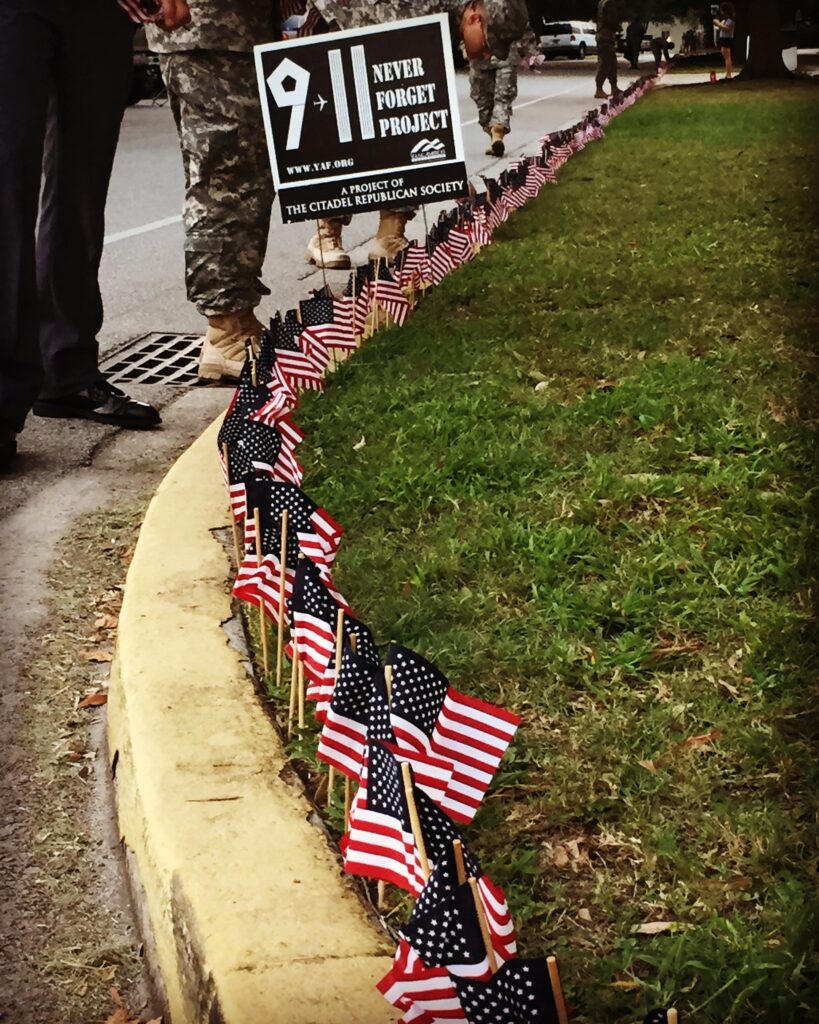
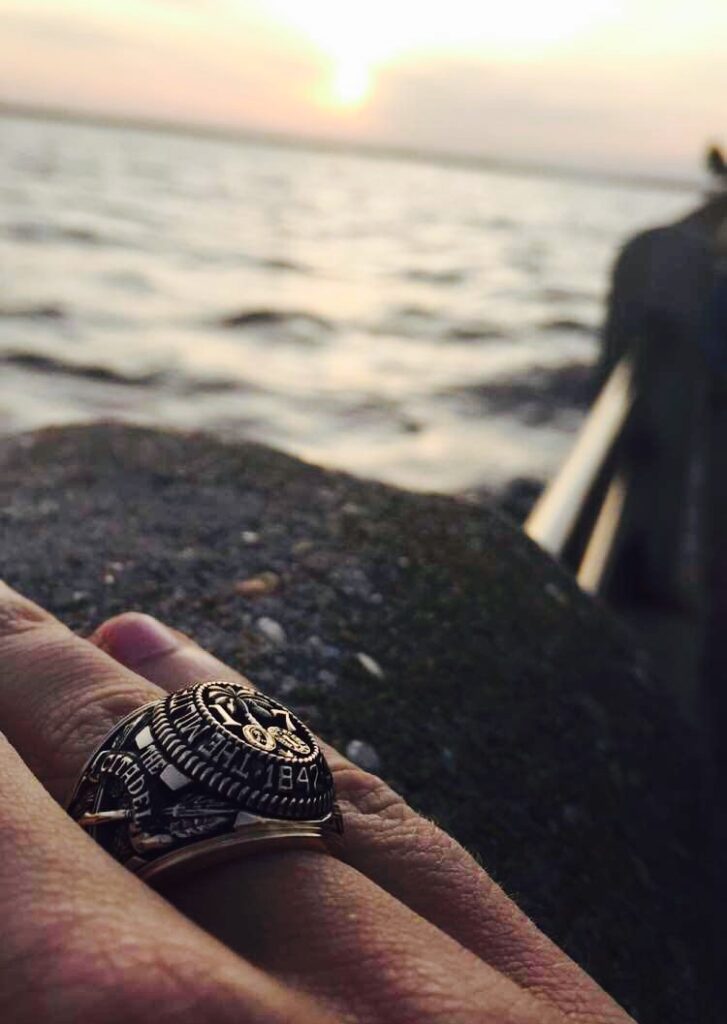
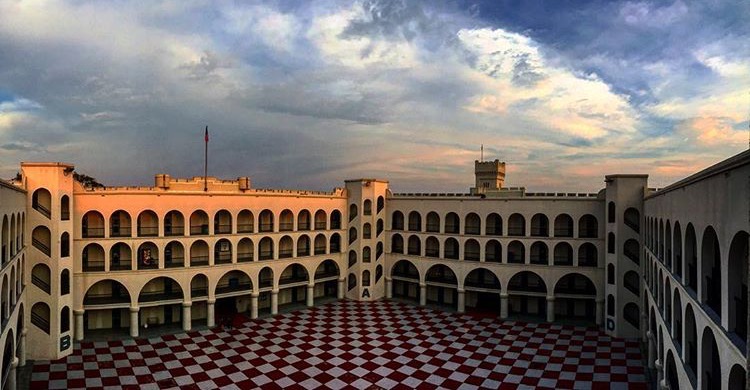
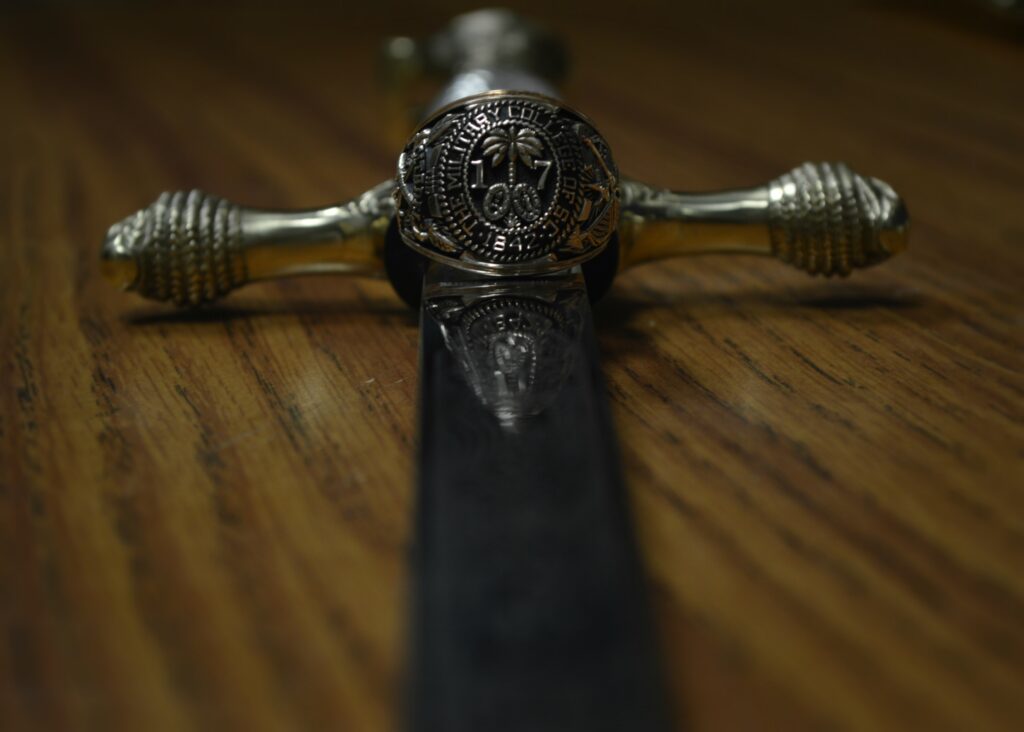
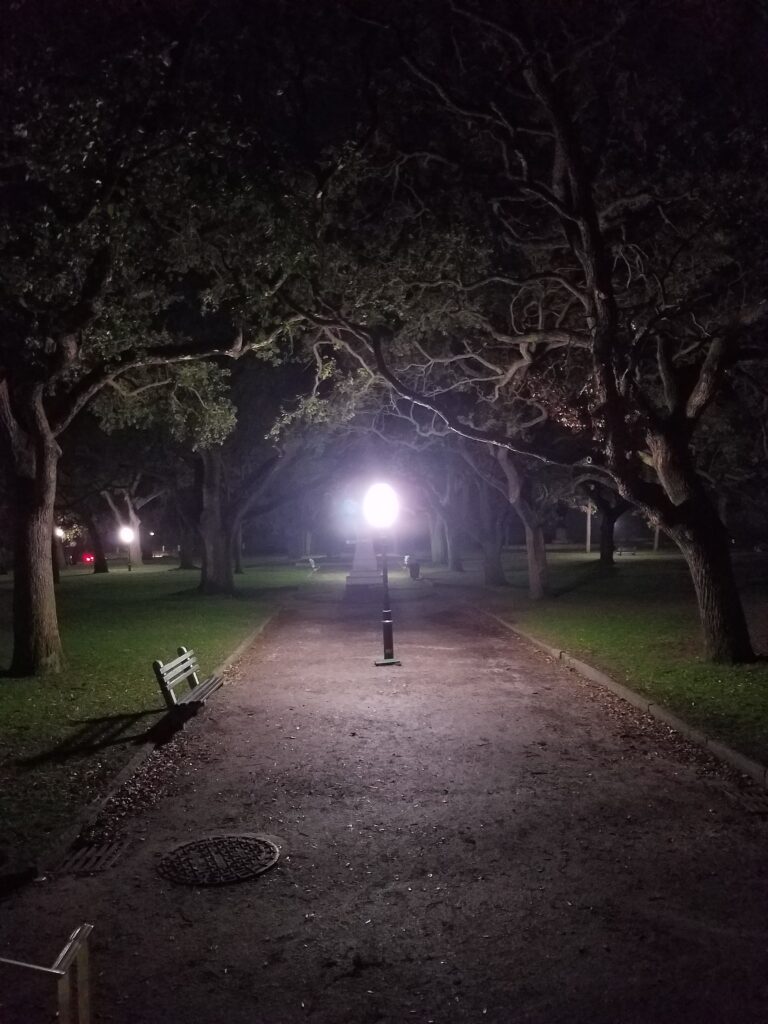
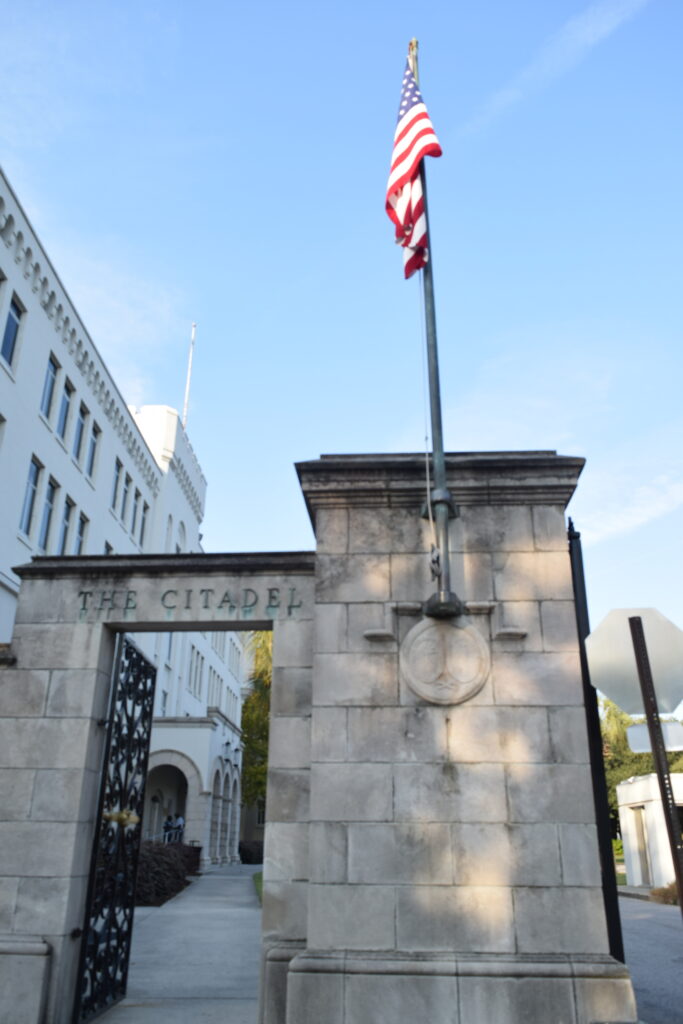
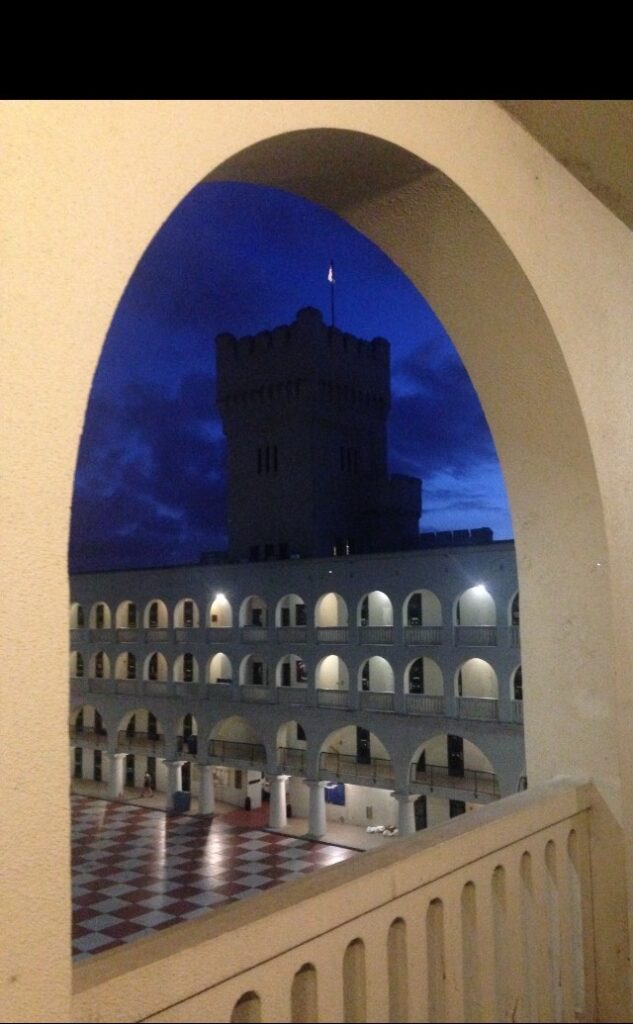
2017 Edition Donors
The 2017 edition was made possible by donations from the following individuals and groups:
- The Citadel Foundation
- Dr. and Mrs. James F. Boyd
- The School of Business
- Mr. Chris and Mrs. Lizzie Clark
- The School of Engineering
- BG Samuel M. Hines, Jr., SCM, Emeritus Provost and Dean of The College
- Anonymous
- School of Humanities and Social Sciences
- Dr. Suzanne T. Mabrouk and Mr. Stephen S. Jones
- School of Science and Mathematics
- Mr. Ronald Willis, Sr.
- Zucker Family School of Education

